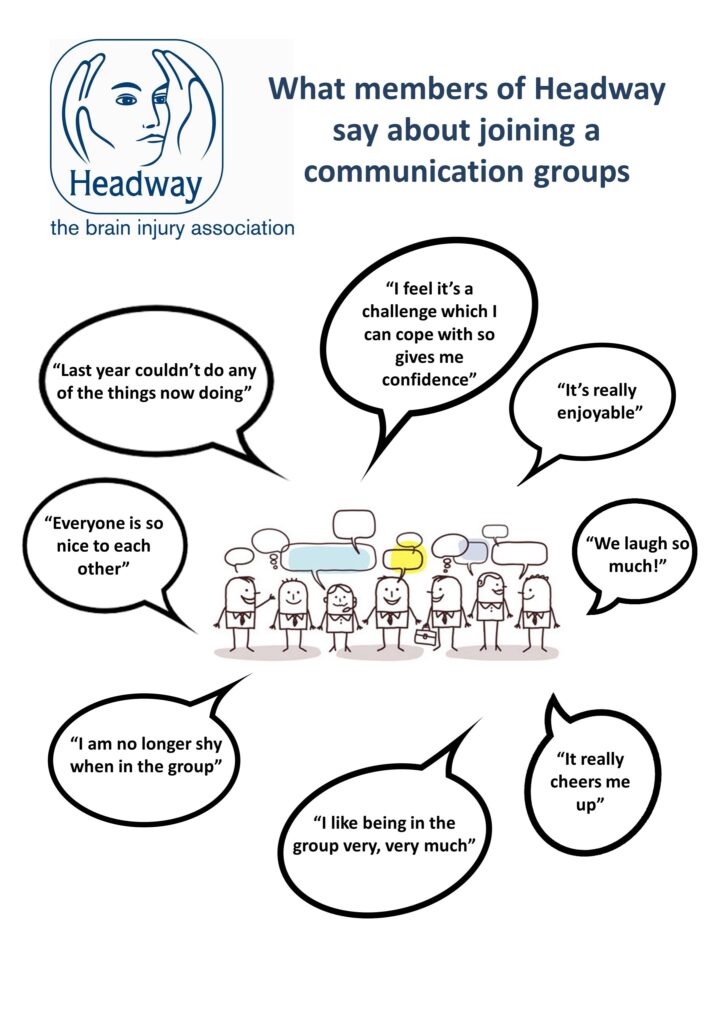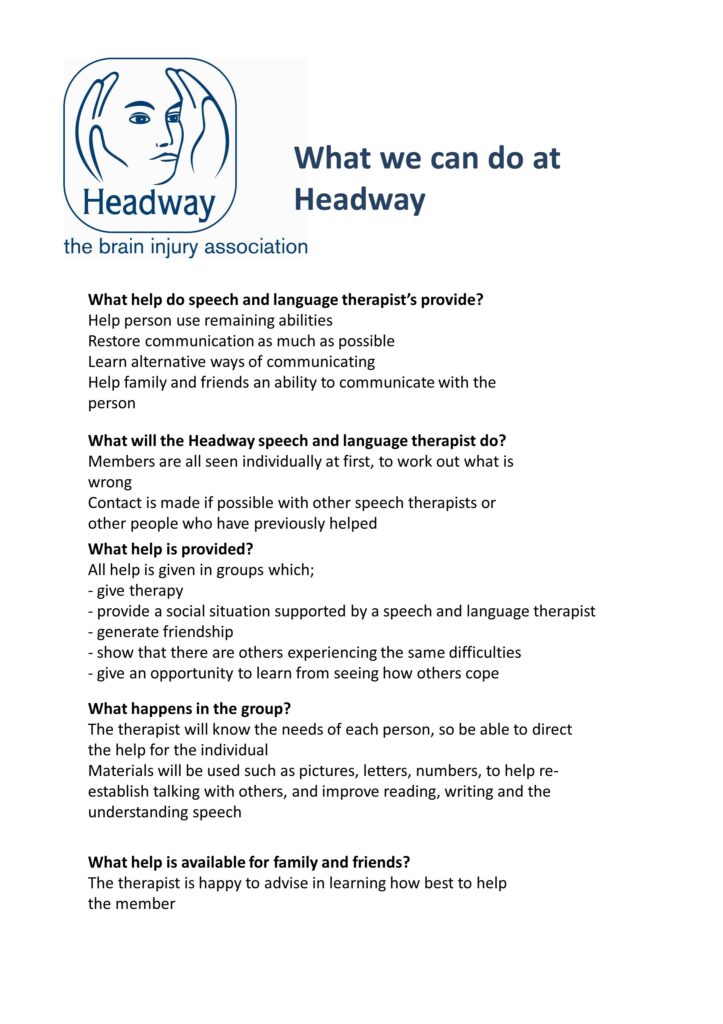
Speech therapy at Headway
This therapy is managed by a qualified speech and language therapist.
Communication therapy can help anyone who feels they are no longer able to speak clearly. They may have difficulty in finding the words for what they want to say, or have a problem in understanding the speech of others. These things are quite common after acquired brain damage. In fact, communication is often the first thing to be affected when life changes due to a serious illness.
What to expect if you ask for help
The speech and language therapist will see you individually to find out what difficulties you are experiencing and what the cause of these problems seems to be.
Some people joining Headway will have had speech and language therapy before and may have been told that no further service is available from the NHS. In these circumstances, it is useful, but not essential, if the NHS services can let the speech and language therapist at Headway, have some information about previous help given. Other people may have not had any help before with their difficulties of communication.
Following some sessions on your own with the speech and language therapist, she will discuss with you what she feels your difficulties are and how they might be overcome. At this point you can decide if you want to join a group for help.
Speech therapy
At Headway this is provided in groups whose members all have similar difficulties. The groups usually have about 5 or 6 members, who all become firm friends and offer support and encouragement to one another.
The groups run for an hour once a week. Some people do attend more than one group.
A variety of enjoyable light hearted activities are provided for a group at each session. They are aimed at improving the skills of speaking, listening, remembering and understanding speech. They may also include some simple reading, if the group member is able to read.
Aims
While help from the therapist is given within a group setting, she will know what particular difficulties a member has and be directing the activity in the appropriate way for each person. This means that the tasks will neither be too hard or too easy for each individual.
These activities can gradually help repair damaged communication, rekindle confidence in communicating and help the individual acclimatise to any ongoing difficulties
Progress
Every so often the Speech and language therapist arranges a separate session with the individual. In addition, the therapist likes to meet with carers or family members, in order to give them an understanding of the member’s difficulties and explain ways in which they can help. She also wants to know of any difficulties they experience in communicating with the member.


